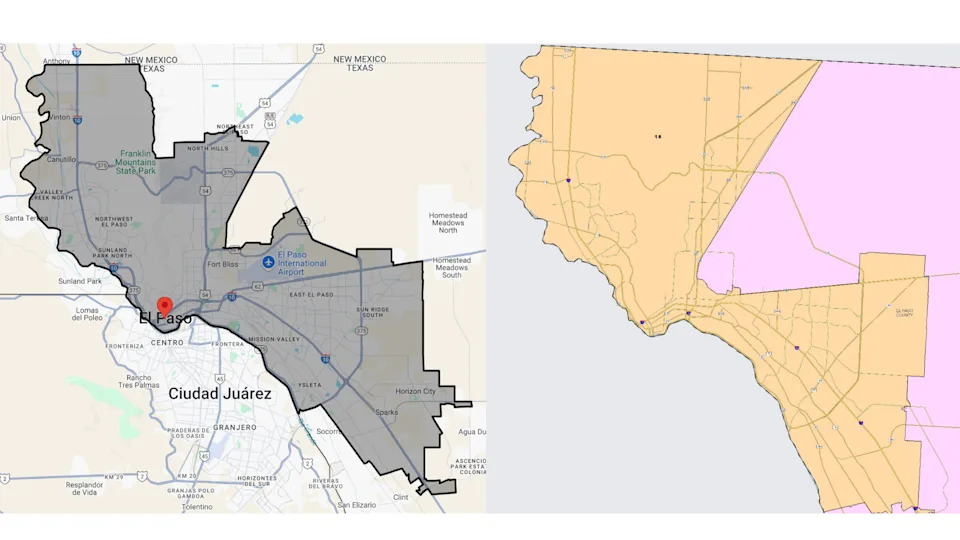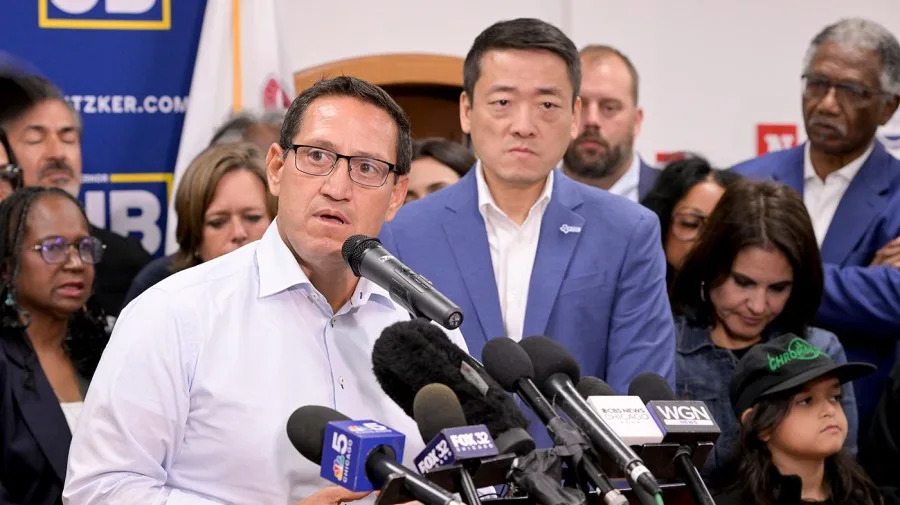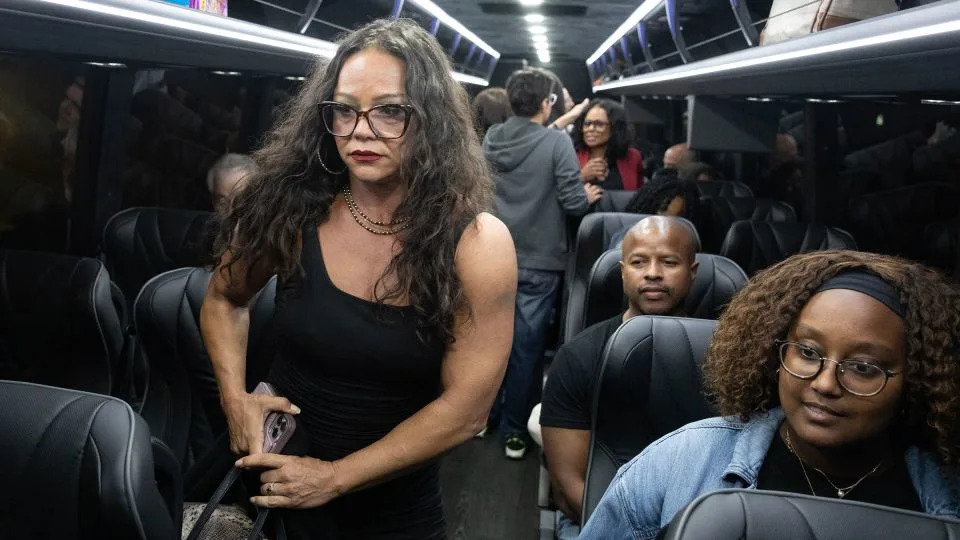
Education leaders from across Michigan gathered Tuesday morning for a roundtable hosted by the Michigan Alliance for Student Opportunity, calling on the Michigan Legislature to immediately finalize a FY 2025-2026 education budget. July 29, 2025 | Photo by Ben Solis/Michigan Advance
Michigan’s education leaders care little about which party or which chamber of the Legislature is to blame for the state’s stalled budget negotiations – they just want it finalized so schools can make sound financial decisions in the coming year.
That was the consensus from six school association heads and administrators in a roundtable news conference hosted Tuesday by the Michigan Alliance for Student Opportunity.
The group touched on the real-time impact to Michigan schools while they wait for a budget deal between the state’s House, Senate and governor’s office.
SUBSCRIBE: GET THE MORNING HEADLINES DELIVERED TO YOUR INBOX
That deal is a long way out, however, due to a breakdown in negotiations between the three parties, particularly the Republican-controlled House and the Democratic-led Senate.
Lawmakers blew past the state’s July 1 deadline for a budget deal, and at present the House has only passed an education spending plan but not a full budget funding the whole of Michigan government. Conversely, the Senate has passed a full budget but has not yet delivered a road funding plan.
Meanwhile, House Speaker Matt Hall (R-Richland Township) and Gov. Gretchen Whitmer are both currently collaborating on a road funding plan.
Either way, Peter Spadafore, executive director of the Michigan Alliance for Student Opportunity, said the current morass was a manufactured crisis.
“We are now four weeks past the statutory deadline to deliver a budget to Governor Whitmer, and every day that ticks by only makes the situation worse,” Spadafore said. “The Legislature has the resources and the authority to get this done, but they’ve chosen not to. It’s time to pass a budget that is sustainable, significant, and puts the needs of our most vulnerable students first.”

Tina Kerr, the executive director for the Michigan Association of Superintendents & Administrators, said her association’s 600-plus members are already confronting the possibility of layoffs and reductions in school services due to the conflict between the House and Senate.
“Public schools began their fiscal year on July 1. They were forced to build budgets without knowing what they’d receive from the state,” Kerr said. “That’s unacceptable and it’s illegal. We’re urging the Legislature and the governor to do their job and finalize a responsible school aid budget immediately.”
Kerr added that the state is not in a recession, nor is it lacking resources, and that the budget delay has nothing to do with school funding.
“It’s being held up by unrelated issues at the expense of our kids,” Kerr said.
Public school board officials are required by law to pass balanced budgets by June 30, whether the state has given them any guidance or not, said Kimberly May, board president of Wayne-Westland Community Schools.
“We do our jobs. Our lawmakers should be held to the same standard,” May said. “By missing their deadline, they’ve violated the law and created confusion that directly impacts how we fund classrooms, programs, and staffing. This isn’t just a breakdown in process, this has real consequences for kids.”
May said the state’s continued delay is only compounded by further uncertainty at the federal level given the amount of funding that has been withheld or redirected by the U.S. Department of Education under Republican President Donald Trump.
“These problems weren’t created by school districts, they’re the result of inaction in Lansing and Washington,” May said.
Others also called the stalemate a manufactured political crisis, including Piper Bognar, superintendent of Van Dyke Public Schools. She said the current situation is taking a toll on under-resourced districts like hers, which is planning to offer fewer resources to students.
“Our budgets were legally approved by June 30, based on current per-pupil funding, but that doesn’t cover the many categorical grants, like 31AA, that support student mental health and school safety,” Bognar said. “Whether or not we can afford School Resource Officers depends on that funding that’s being withheld.”
Bognar said the Legislature – and particularly the House in its rhetoric focusing on roads – was putting “concrete over our kids” and prioritizing roads over education.
“But public education was never meant to be a bargaining chip, it’s supposed to be the great equalizer,” Bognar said. “I serve students who are first-generation college hopefuls, students like me. They succeed because of what we invest in them. And when we delay or underfund schools, we deny them the tools to succeed.”
Wendy Zdeb, executive director of the Michigan Association of Secondary School Principals, said that school leaders are being asked to make academic, staffing and program decisions without knowing what kind of funding they’ll receive in the next school year.
“We’ve built schedules, hired staff, planned course offerings and interventions,” Zdeb said. “Now we’re asking: Will we have to cancel classes? Increase class sizes? Cut mental health supports, AP courses, or CTE programs?”
Without a budget that both hits the mark for schools and is delivered on time, those choices could be heartbreaking, and could result in a loss of opportunity for Michigan students trying to get ahead in their studies, said JoLynn Clark, principal of Frankenmuth High School.
“The state must pass a budget that increases the per-pupil foundation and includes weighted funding for high-need students,” Clark added.
The group was asked about Hall’s focus on roads and removing the sales tax on fuel to pay for them, which would in turn alter the sales tax structure for the state’s school aid fund.
Spadafore said that discussion has been going on for years and before Hall stepped into the speaker’s office. He said it was “a cute turn of phrase to say that every penny at the pump should go to the roads,” but that’s not how Michigan’s sales tax works.
“We’ve had that discussion, and it usually fizzled off quite quickly,” Spadafore said. “The difference with the last plan was that it did earmark replacement revenue to accommodate that switch, so we didn’t see that as a choice at the time.”
Now, the discussion includes more and more dollars coming out of the school aid fund to pay for higher education. To remove the sales tax on fuel to pay for roads, or to talk about paying for other non-K-12 related functions, Spadafore said policymakers in Lansing have set up a false choice between roads and students.
That’s why the group is attempting to draw a line in the sand, demanding that the Legislature back away from that plan and to just get the job done.
“Get our budget done right, and then figure out what’s left to cover up the other resources that are necessary,” Spadafore said.








Comments